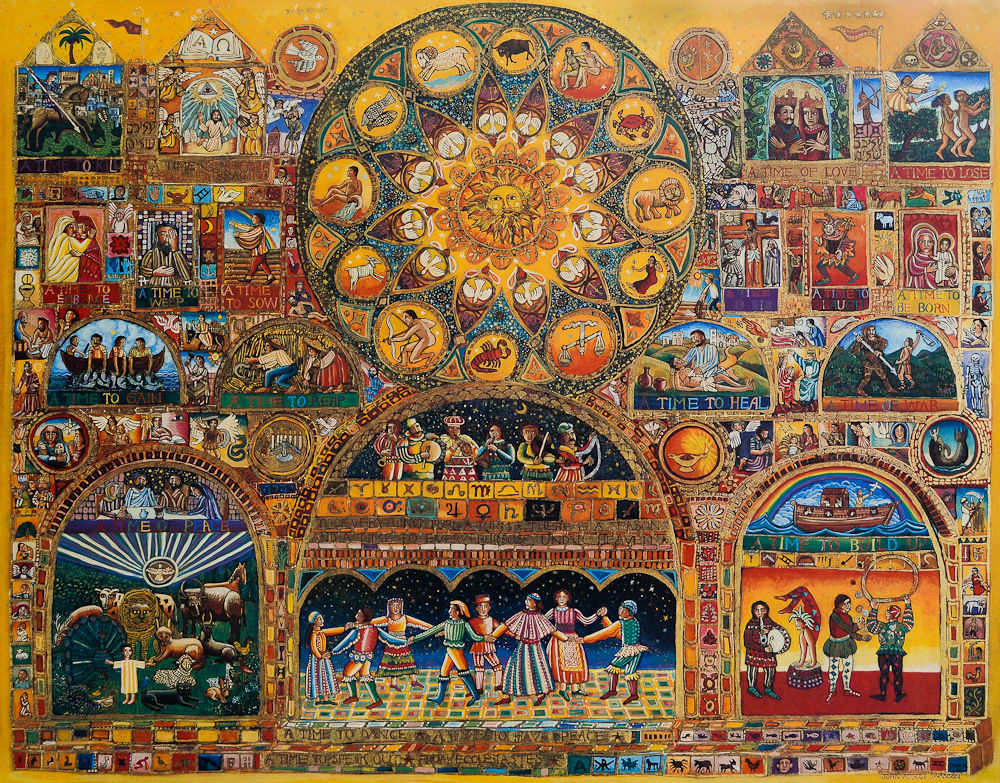Spiritual Sunday – Rosh Hashanah
As Rosh Hashanah begins today, calling upon us to reflect on our lives, I share a meditative poem by the great Israeli poet Yehuda Amichai. To set it up, here’s the well-know passage from Ecclesiastes (3:1-8) that it references:
To every thing there is a season, and a time to every purpose under the heaven: a time to be born, and a time to die; a time to plant, and a time to pluck up that which is planted; a time to kill, and a time to heal; a time to break down, and a time to build up; a time to weep, and a time to laugh; a time to mourn, and a time to dance; a time to cast away stones, and a time to gather stones together; a time to embrace, and a time to refrain from embracing; a time to get, and a time to lose; a time to keep, and a time to cast away; a time to rend, and a time to sew; a time to keep silence, and a time to speak; a time to love, and a time to hate; a time of war, and a time of peace.
As Amichai sees it, the wise author shows us the perspective we should have but not the perspective we actually do have. Perhaps our soul knows that there is a season for everything, even a season for dying. If we were as wise as our soul, we would embrace the bad times as well as the good. Our body, however, is
an amateur. It tries and it misses,
gets muddled, doesn’t learn a thing,
drunk and blind in its pleasures
and its pains.
In the spirit of the High Holy Days, however, the poem points, like a bare branch, to the mystery that is beyond us. where “there’s a time for everything.”
A Man in His Life
By Yehuda Amichai
A man doesn’t have time in his life
to have time for everything.
He doesn’t have seasons enough to have
a season for every purpose. Ecclesiastes
Was wrong about that.
A man needs to love and to hate at the same moment,
to laugh and cry with the same eyes,
with the same hands to throw stones and to gather them,
to make love in war and war in love.
And to hate and forgive and remember and forget,
to arrange and confuse, to eat and to digest
what history
takes years and years to do.
A man doesn’t have time.
When he loses he seeks, when he finds
he forgets, when he forgets he loves, when he loves
he begins to forget.
And his soul is seasoned, his soul
is very professional.
Only his body remains forever
an amateur. It tries and it misses,
gets muddled, doesn’t learn a thing,
drunk and blind in its pleasures
and its pains.
He will die as figs die in autumn,
Shriveled and full of himself and sweet,
the leaves growing dry on the ground,
the bare branches pointing to the place
where there’s time for everything.
A note on the artist: More information can be found on John August Swanson’s painting of Ecclesiastes 3:1-8 at http://calnewman.org/2012/08/discover-the-art-on-display-at-newman-2/


